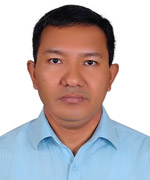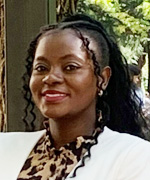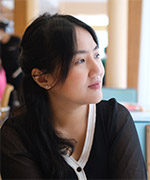Anupam Chakma (Bangladesh, AY2023-2024)

I would like to extend whole-hearted gratitude to the World Customs Organization, and the Government of Japan for this unique contribution to develop human resources of the global customs administration! I also would express heart-felt thanks to Aoyama Gakuin University, the Salt of the Earth, the light of the World for being a mesmerizing host of SMIPRP! I am grateful to Bangladesh Customs as it has given me this ‘once in a life time opportunity’ to pursue SMIPRP for my organizational development as a whole.
Almost first six months full of activities and challenges have been passed! Life in Japan cherishing a noble vision started on March 11, 2023 with the Japanese modest welcome at the airport! Reception in that cool morning but with warm gesture indicated the blossom of another chapter of my life in Japan! It opens a new horizon of potentials and diversity in this cleanest and safest country of the globe! The sincere support of all the honorable ‘Professors -Full of Wisdom’, ‘Coordinators-Caring in every aspect’ from AGU has made my life bloomed and beamed with new hope and aspiration.
Have you ever heard of ‘Sensing nation’? Yes, after arrival in Japan, I feel the collective sense of ‘Bigaku’ (the Japanese sense of beauty), ‘Gambari’ (Japanese patience and determination), ‘Giri’ (Japanese social obligation), ‘Kenkyo’ (the Japanese virtue of Modesty), ‘Kisetsu’ (the Japanese sense of seasons, like Cherry blossom or Sakura), ‘Aimai’ (the ambiguity and the Japanese for being High-Context Culture), and so forth. (Source: Roger J. Davies, Osamu Ekeno. 2002. The Japanese Mind: Understanding contemporary Japanese Culture). Behind each and every phenomenon here in Japan has sensible and hidden meaning that should be comprehended. Thus, respectful silence and deep thinking with Beautiful Harmony (Reiwa) and tolerance has characterized the Japanese honorific culture, the most learning point for me. Queue in patience everywhere without any unpleasant argument has been a collective national symbol of the Japanese that I admire most.
The SMIPRP academic curriculum basically includes Management, Competitive strategy, Organizational behavior, Customs Law, Customs Tariff Law, Copyright Law, Intellectual Property Rights (IPR), IPR Enforcement at the border, Statistical Analysis and so forth. All these courses are crucial in the contemporary paradigmatic shift of theoretical and practical school of thoughts in the global customs arena. Most importantly, carefully designed realistic syllabus of the IPR Courses attracted my attention most as IPR infringement is intertwined with global criminal activities to be prevented for better future. I believe, the knowledge, imparted by the profoundly expertise professors through active interaction, enlightens me the most as the motto of AGU, the light of the world! However, I consider, the most significant learning part is the rigorous Academic Writing (AW) Orientation to accomplish the thesis just within a year! It poses immensely the hardest training to conduct a thesis abiding by the full-fledged academic rules and manner. Nonetheless, I realize it is the landmark achievement of my journey in SMIPRP to prepare myself as a future academician in the pedagogy of ‘Modern Customs Administration School of thoughts’.
To “aspire, ascend, achieve” is one of the survival strategies. Where there is devotion to one’s dream, it is achievable. Just as continuous efforts for further improvement as Japanese term ‘Kaizen’, the SMIPRP journey of my professional development is also a long way of perseverance. It’s also an endless endeavor of trial and error. Academic stress, adaptation and a bit cultural shock at the very beginning was challenging for me. But time is the best healer! As time passes, the vibrant atmosphere of AGU, Shibuya make the best journey of my life memorable. AGU has another architecturally monumental campus in Sagamihara near my peaceful residence. As I have been into the cheering exploring mood, I could feel the ‘Baigaku’, the Sense of Beauty in Japanese culture. The journey of SMIPRP contributes to my life in two ways. Firstly, it provided me with the abundant opportunity to get acquainted with the best practices of contemporary customs administration along with that of the developed country like Japan through cross-culture sharing with the inspiringly experienced fellow-scholars and also with the versatile Sensei (Teachers). Secondly, SMIPRP will continue to leave a long-lasting light on my mind to discover, sensitize all the functional senses of Japanese culture specifically the Gambari, Kenkyo, Baigaku, Discipline, Punctuality, Highly-Professional Functional relationship along with all the Unique Senses of Morale mentioned above. I humbly recommend the future customs officials from all over the world to pursue this program to ‘know thyself’.
Edelqueen Athenga Shioso (Kenya, AY2023-2024)

Looking back at everything I went through to finally make it to this country as a scholar in the SMIPRP programme at Aoyama Gakuin University, courtesy of World Customs Organization’s scholarship, truly I can say it was all worth it. I had fears coming here, and at first, the cultural differences seemed to be a little overwhelming. One time while conversing with one of my fellow scholars, I told him in jest that I felt the weight of Africa on my back because I perceived that people would judge Africans and the continent by how I talked, walked, behaved or even dressed. The pressure to be perfect and act perfectly nearly ran me insane because I did not want to poorly represent the continent. That was until I decided to give the new country and people around me a chance by being open-minded and keeping a positive mentality. Only then, did I begin to enjoy and experience a whole new academic and cultural world.
The SMIPRP programme is organized meticulously to a level where scholars are able to follow through and excel within the time parameters laid down. AGU professors’ unmatched knowledge, skills and experience helped us learn new methods of solving common management problems that our Revenue Authorities often face. Their practical teaching methods I believe appreciated our skills to a point I’d like to imagine would make us very valuable to our organizations upon graduation. In addition, the IPR knowledge gained puts our customs administrations at a better place of combating counterfeit imports. When it comes to accommodation and general acclimatization in the new country, the University’s Coordination office also went out of their way to help us settle by helping us fill the necessary forms, sorting our accommodation problems and in summary, being our ‘parents’. It is impressive how the office was always available to solve any of our problems.
I believe the programme being in a different country also has an objective of cultural integration and understanding. Being in a class with nine students all from different countries, my understanding and appreciation of different cultures is unequivocal. This programme helps one to critically examine themselves and in the process, appreciate themselves and other people at the same time. I have fallen in love with the Japanese peoples’ work culture, their integrity, helpfulness, respectfulness and how disciplined they are with following rules and regulations. I cannot even count the number of times I was lost in a station and I had a Japanese be willing to stop what they were doing in order to help me find my way, sometimes even walking with me for miles and kilometers. I will take back with me these attributes from the Japanese culture.
The Strategic Management, Intellectual Property Rights Programme is a great opportunity for the scholars and their customs administrations whose only fault is its inability to have a representative from every developing country in every year. The knowledge and skills gained ought to be made available to as many revenue staff as possible. I am mostly grateful to God for this unforgettable and valuable experience, World Customs Organization and Kenya Revenue Authority for making it possible and to Aoyama Gakuin University for its high quality educational standards. The experience has not only added value to my life, but also to hundreds of other peoples’ lives back in Kenya when I’m given the opportunity to put into practice everything I’ve learned. Arigatoe Gozaimasu.
Wachiraya Pomkasan (Thailand, AY2023-2024)

Becoming one of SMIPRP participants is one of the best experience in my life. Before visiting Japan, I have many expectations. When I am actually here, the program gives me more than I expected. First of all, I think this program suit to every Customs officer who wish to pursue a master’s degree in foreign country, especially for those who has never experienced living aboard. It is because this program arranged everything for us to live in Japan since we first arrived the airport and helped us settle down before the semester started. Of course, we have to do something by ourself sometimes, but it is much better having some supports from administrative staff.
Moreover, the subjects in this program effectively enhance necessary capabilities for customs officers. SMIPRP not only provides customs related subjects where participants exchange their real experiences and insights, but also strategic management and IPR subjects, widen our perspectives to see and understand the world of globalization.
Besides, Aoyama Gakuin University has been well-known in Japan for a century. I enjoy living and feeling the vibes of the university. As there are so many Japanese and international students and it is located in Shibuya, one of the most famous destinations in Japan in which I have so many things to learn and explore.
Not to mention unforgettable moments with WCO and site visiting. SMIPRP helps us to envision our future with WCO by attending meetings and seminars. We also went to visit Tokyo Customs, Okinawa Customs and some organizations in Japan many times. It is an exclusive opportunity which rarely happens if I am not one of the SMIPRP participants.
In conclusion, I have never regretted choosing this program. I realized that nobody can discover and gain experience but myself. I do appreciate WCO for trusting me to seize this precious opportunity. I feel thankful to my organization that they value the importance of education and let me take this chance. I am blessed to learn from my best advisor and every sensei. Lastly, I would like to thank you for all the support from administrative staff. I will never forget this memorable time in Japan.

